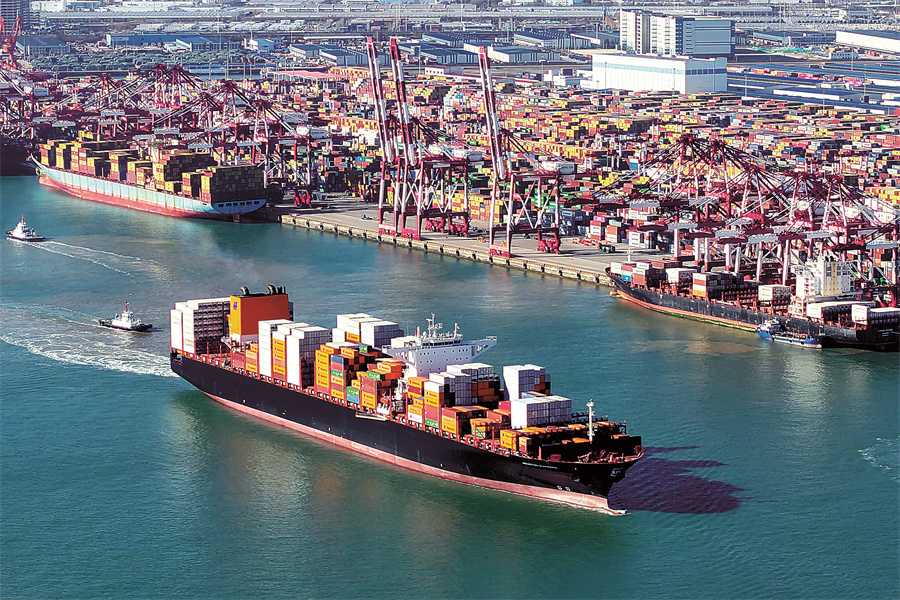China, EU vow joint efforts to uphold multilateral trading


The joint efforts of China and the European Union to uphold a rules-based multilateral trading system and promote trade liberalization will enhance the stability and certainty of global trade and the world economy, said senior trade officials on both sides.
During his meeting with European Commissioner for Trade and Economic Security Maros Sefcovic via video on Tuesday, Chinese Commerce Minister Wang Wentao said the so-called "reciprocal tariffs," proposed by the United States, seriously infringe upon the legitimate interests of other countries and severely undermine the stability of the global economic order. This is a typical act of unilateralism, protectionism and economic coercion.
China is willing to resolve differences through consultation and negotiation, but if the US insists on going its own way, China will fight to the end, said Wang, according to a statement released by China's Ministry of Commerce on Thursday.
Sefcovic said the US tariff hikes have severely impacted international trade, causing significant repercussions for the EU, China and many vulnerable countries, The EU is willing to work together with other World Trade Organization members, including China, to jointly safeguard the normal functioning of global trade.
Despite that the US accounts for only 13 percent of global goods trade, he said that the US actions have had disproportionate effects, said Sefcovic.
Emphasizing the importance of China-EU economic and trade relations, he said that the European side is ready to strengthen dialogue and communication with China and to promote expanded two-way market access, investment and industrial cooperation.
China and the EU agreed to promptly launch consultations to conduct in-depth discussions on market access-related issues, with the aim of creating a more favorable business environment for their businesses, said the statement.
They will also immediately begin negotiations on electric vehicle price commitments and discuss investment cooperation in the automotive industry. Both sides expressed support for restarting the China-EU trade remedy dialogue mechanism, engaging in discussions on trade diversion issues, and effectively managing trade frictions.
In another video meeting with Tengku Zafrul Aziz, Malaysia's minister for investment, trade and industry on Wednesday, Wang said the US "reciprocal tariffs" disregard the hard-won balance of interests achieved through years of multilateral trade negotiations and ignore the fact that the US has long reaped substantial benefits from international trade, according to a separate statement released by China's Ministry of Commerce.
This move severely undermines the legitimate rights and interests of all parties involved, including China and ASEAN countries, and represents a typical act of unilateral bullying, said Wang.
The Chinese commerce minister reiterated that China is willing to work with its trading partners, including ASEAN, to strengthen communication and coordination, address respective concerns through equal-footed dialogue and consultation based on mutual respect, and jointly uphold the multilateral trading system.
Tengku Zafrul said that the relevant policies of the US government don't conform to the principles of free and fair trade as stipulated by the WTO. Malaysia fully respects China's position and is willing to jointly support multilateralism and the development of global trade.
Malaysia will consult with ASEAN countries on the series of US "reciprocal tariff" measures to formulate a coordinated response, he said.




































